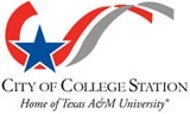10/27/2009
Texas Red Light Camera Program Offers No Appeal to CitationsTexas cities allow no meaningful appeal of red light camera tickets. College Station fudges accident data in voter brochure.

The right to a meaningful appeal in a red light camera case does not exist in the state of Texas. While several states have allowed photo enforcement tickets to be appealed to the highest level -- Minnesota's highest court ruled on a photo ticket in 2007 and a red light camera case is currently pending before the California Supreme Court -- several Texas municipalities are using an ambiguity in state law to deny challenges beyond the lowest level of the court system.
"Under the current red light ordinance there is no right to appeal beyond municipal court," College Station Municipal Court assistant Wanda Lapham wrote in a letter to Jim Ash (view letter).
Ash is responsible for organizing the effort that gave residents the right to vote on the future of red light cameras next Tuesday. As part of his educational effort, he has been publishing embarrassing correspondence from city staff that highlights little-known facts about the program contrary to city and vendor-prepared advertising material. The lack of meaningful appeal is central to Ash's complaint regarding photo ticketing.
"I reviewed the origins of my opposition to the cameras," Ash wrote. "No due process; no jury trial; no traditional right to appeal to a higher court; equal protection clause challenges related to the fact that the offense is at the same time a criminal and civil violation."
For Ash, departing from the system established by the Constitution undermines the most fundamental elements of fairness.
"Did you ever stop and wonder why the founders of our country set up such a system?" Ash asked. "They set up our system the way it is because they understood that the state has disproportional power... The state has the power to make laws but it is ultimately up to the citizens to enforce the laws in acting as members of a jury. I am unwilling to be denied the right to a jury trial for any reason."
Ash has also challenged the city's use of taxpayer money to send red light camera promotional material to residents in the hope of swaying their vote next month. If a city official knowingly included false information in such a mailing, it becomes a crime. According to Mayor Ben White in testimony before the state House of Representatives in April, accidents increased overall at the intersections with red light cameras.
"The number of crashes at the four intersections with red light cameras increased from 24 in 2006 to 28 in 2008," White testified.
This fact, however, was not included in the "educational" material sent to voters. Instead, the city's flyer included a chart suggesting the number of crashes decreased from 13 in 2006, before cameras, to 7 in 2008, after cameras were installed. The reduction was created by excluding inconvenient accidents by labeling them 'not red light related.'


